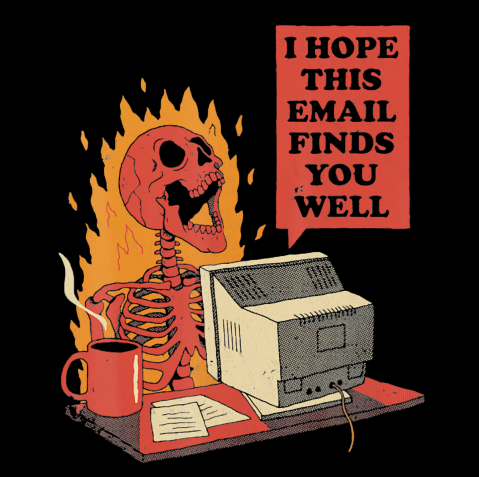
Linux.

The world would be a very different place if linux didn’t exist.

No Android phones, insanely outdated internet, software development confined to what corporations allowed… Yea things could have been a lot worse
- argv_minus_one ( @argv_minus_one@beehaw.org ) 2•2 years ago
Insofar as BSD is very different. Linux emerged while BSD’s legal status was in serious doubt, and had already gathered considerable inertia by the time the court case ended, but the court case ended favorably for the BSD community, so we’d have ended up on that if not for Linux.

/thread
This is it.

Bitwarden is one I use several times a day. They do have a support plan for like $10 a year that gives a couple extra features like TOTP support, but the base level is incredibly robust. It’s open source, too. I know a lot of folks also host their own servers with Vaultwarden, but that’s a little beyond my skill level.

I pay for it just because it’s cheap and to support them

Same, the free tier is so good that I’m paying to make sure it stays free.

I pay for it just because it’s cheap and to support them
I did this too when it first came out, and then the product became robust enough that I recommended we implement it at work because secrets management was non-existent. We have a bunch of licenses on the Enterprise plan now and it just keeps getting better each update.
My only complaint is that migrating the data to a new server is a pain in the ass and never works correctly, even when following the migration instructions to the letter. Always have to open a ticket with them for that. Not enough of a pain to move to another product, though.
I also still pay for my personal plan. It really is a fantastic product.

Great I do the same too!

Additive Manufacturing
FreeCAD Linkstage - RealThunder’s fork of the FOSS CAD package is less buggy, has improved rendering, and is much easier to use.
PrusaSlicer - A snappy alternative to Cura for slicing 3D models for printing. A lot of awesome features and it’s constantly under development.
Blender - I’ve done a little here and there with Blender, but Cycles works great for product renders. It’s such a vast and amazing program that can accommodate so many different use-cases.
Music Production
LMMS - An FL Studio-like DAW with a simplified workflow and robust features. Lackluster plug-in support out of the box, but the addition of a VST host and waveform editor make it a fully-featured way to make music.
Element - Fully open-source VST host with support for VST3. Also works as a standalone application, which means you can create plug-in chains without touching your DAW. You can also save presets of those chains, and do crazy signal routing with the two-dimensional geometry nodes-esque UI.
Vital/Vitalium - It’s literally FOSS Serum. You can follow Serum tutorials, and have them turn out. A wavetable synth that’s so darn easy to use, you’ll never want to use anything else. This is the quintessential FOSS future bass producer’s synth.
Dexed - DX7 cartridge manager and emulator. It sounds like an awesome 80s FM synth; what can I say? Must-have for synthwave and noodling around with new sounds.
Audacity- The only FOSS waveform editor worth using. It’s extremely flexible, has a ton of useful built-in effects, and makes for a great companion to LMMS when you need to make more in-depth edits to samples.
Cardinal - FOSS fork of VCV as a VST, which enables you to create crazy virtual eurorack creations and play them with MIDI. You can also use it standalone, and the sheer number of built-in plug-ins basically guarantees your dream of automatic music generating machines are only a few clicks away.
MusicGen - A recent ML tool by Facebook that can be run locally; essentially SOTA on few-shot text-to-waveform music generation. If you have a somewhat-high-end GPU, it will probably work for you. A great tool for sampling into weird ambient tracks.
RVC - A recent tool that is fast to train and provides extremely realistic voice-to-voice conversion, especially for vocals. Ever see those AI SpongeBob singing memes? This is probably how they did it.
Photo Editing/Design
PhotoGIMP - While I’m still using Photoshop, PhotoGIMP is an add-on for GIMP that attempts to port the Photoshop UI to… GIMP. It’s mildly successful, and potentially can ease the pains of transitioning to a new program. I’m honestly too lazy to switch at this point, but it looked promising when I peeked the last time.
Inkscape - I suck at vector anything, but this program proved to be useful on occasion. I believe it’s a serious competitor to Illustrator if you bother to learn how to use it properly.
A1111’s Web UI - Now totally FOSS, this absolutely insane piece of software integrates with so many different useful plug-ins to accomplish basically any conceivable image generation or AI-with-images task imaginable. You can literally do anything from normal text-to-image generation to upscaling or colorizing, and even img2img; it’s multi-modal to no end.
EDA/PCB Design
KiCAD - Hands down the best EDA package I’ve used. Granted, it’s the only one I’ve used. Still, this is how FOSS software for engineering purposes should be designed. I wish they would send their UX people over to help FreeCAD out. If you need to design a PCB for anything at all, use KiCAD, period.
Programming
NodeJS - The sole reason JavaScript is worth learning for more general computing tasks; with the sheer variety of packages on NPM, it feels like you can do anything.
VSCodium - All of what makes VSCode worth using, and none of the creepy MS telemetry.
General Computing
7zip - The one program to conquer all archive formats. It works, and it’s absolutely tiny. I’ve even installed this on Windows 2000, and of course it worked fine.
LibreOffice - Occasionally buggy, but certainly the best FOSS office package currently available. LibreOffice Writer and Calc are especially usable and work great.
VLC - Is there anything this traffic cone can’t play? Superb video and audio codec compatibility, although it won’t play a MIDI unless you feed FluidSynth a soundfont to atone for your sins.
Strawberry - For when you want to listen to tons of music, but you hate the clunky nature of other audio managers. Strawberry basically doesn’t use a DB, and instead edits metadata directly. It will also instantly update when you add new songs or change metadata, so you rarely have to restart it. It’s the fastest way to manage tons of music I’ve found.
PCPartPicker - A website, but still worth mentioning. This is basically the only tolerable way to part out a PC, and it makes sharing specs of your recent projects trivial.
Rufus - Someone else mentioned this one, but it’s basically the only tolerable way to create bootable installation media. Works well, and it’s FOSS.
Operating Systems
Manjaro KDE - The closest you can get to SteamOS’s desktop mode. Based on Arch, like SteamOS, and the same DE as SteamOS.
ZorinOS - Tolerable derivative of Ubuntu LTS, especially for Windows natives.
Games/Emulators
Quadrapassel - Best Linux Tetris clone ever conceived. It’s in my Steam Deck library, for Pete’s sake.
Yuzu - Pairs well with a PC handheld and a “screw Nintendo” attitude. The Switch emulator that is often marginally faster (and often slightly less accurate than) Ryujinx.
OpenRCT2 - RCT, especially the first two games by Chris Sawyer, are some of the best tycoon games ever created. OpenRCT2 is a faithful reimplantation that is going places.

This is an amazing list. I will +1 Dexed cos FM is great, and add a few more music production apps to the list.
BBC Symphony Orchestra Discover - A great all-in-one orchestral vst with decent samples. Great for people wanting to bridge the gap between writing with sections and writing for specific instruments. Lacks articulations like Legato and Marcato, but is ridiculously good for the price of jack shit
SPAN - An excellent mixing and mastering vst that gives you a highly configurable fft spectrum analyzer, with a few presets for translation checks. My favorite feature is the correlation meter, which helps me visually check interference in stereo mixes
Kontakt free library - Has some solid samples for a selection of instruments, but I mostly use the Jazz Guitar and Bass Guitar from here for basic sketching
Equalizer APO - System wide EQ. Extremely configurable. I’ve since hopped over to SoundID Reference, but prior to that, I was using this. It’s great for making all your headphones and speakers sound like any other pair of headphones, and there’s a huge library of headphone presets that tell you how to get a neutral signature on just about any pair of them

Oh, Konkakt reminds me of VSCO/VSCL and the many SFZ players, which effectively together make up a fully-FOSS alternative. Oh, and Freepats has a few one-offs for things like dry electric guitar and bass guitar SFZs.
SPAN is pretty decent, especially if you use a little trick in the free version to freeze a frequency spectrum of a pro mix to reference.

Hah, you read my mind with sfzs. I was gonna put it in my list but honestly none of the sfz hosting vsts I use stand out in any particular way.
The sfzs themselves are amazing though. I’ve gotten to hear and play with more uncommon instruments due to the wider sampling community.

Great list!
I’d definitely replace Manjaro KDE with EndeavorsOS nowadays, it’s just way better without all the weird drama. And HoloISO if you want to go as close to SteamOS 3 as possible.

OpenStreetMap is a free, editable map of the world, created and maintained by millions of volunteers. It includes data about roads, buildings, shops, points of interest, and more.
Many of the benefits of Google Maps without all its spying and advertising.
Bonus in line with this: OsmAnd.
Edit: a more lightweight, but fully FOSS OSM client: Organic Maps. Blazing fast and under constant development.
Edit 2: Here is a Lemmy community dedicated to OsmAnd: !osmand@lemmy.ml

Bitwarden and firefox
I sont use it but blender is another one

What is blender for? I would Google it but I imagine it would mainly be kitchen accessories

Blender is an open source 3D art/graphics program, on-par with what companies charge hundreds of dollars per month for. Unlike some things where people say “Use GIMP instead of Photoshop!”, Blender is actually industry standard everywhere I’ve worked

3D modelling

For the self-hosters out there, there’s VaultWarden, which works seamlessly with all Bitwarden plugins and apps.
It’s very lightweight and easy to setup and run. It has support for multiple accounts, so you can use it for your family, or business, or whatever!

Linux

Not an “app” but close enough :) I agree anyway

I came here to post that!

Weawow is a completly (also ad-)free weather forecast app run basically solo by a Japanese guy. I was surprised when I found this app that it was so good in every aspect that I had to donate the guy.

Nice find, I just downloaded it and it looks amazing, thank you!

Vivaldi is same as Chrome you pay with your user information.

I don’t think thats true, Vivaldi is more like Chromium is you want to do that comparison. Well anyway they are way different thant the google user profile tracking you get with all the google servies. They mostly makeoney with partner deals in pre-set bookmarks and search engines. They explicitly say they don’t collecr user data: https://vivaldi.com/blog/vivaldi-business-model/
But yeah I get your point. They are still not a “non-profit” like the signal foundation or wiki etc. Still the whole company and the team behind them relies om a lot of work by voluntaries im they forums an big collection and I totally would pay for Vivaldi or donate for them if they ever want to change their business model to become donation driven.

Taking the opportunity to get on my soapbox and remind everyone that free software still requires someone’s time and effort to maintain. If you’ve been using a free app for a while and you and you enjoy it (and you have the means to do so), consider sending a donation to the developers/maintainers! It’s a good way to help ensure that the great, free app you enjoy stays great and free.

If I might add to your excellent reminder, that if you’re lacking on funds but have some coding skills, most projects are in need of some help. Stick your head into the dev forum and try a low-hanging bug.
If you can’t code, MANY projects need help with documentation, translation, marketing, fund raising, etc.
Writing a comprehensive positive review on an app store or review site can have an impact.
If you do have a few bucks but need more for them than a donation can offer, buying their products (when available) - even just stickers and mugs helps to spread the word around while also supporting the developers.

Or, if you don’t pay for the product, you are the product.

Totally agree. I donate to projects already but I need to do it more.

Jellyfin, it’s literally free Netflix if you own even just an old computer and some storage. Also open source that is another huge plus

I fucking love my Jellyfin server, it’s so seamless

LibreOffice for word processing and spreadsheets.

Honestly the open source office suites are pretty amazing now. It’s what put me off Linux initially all those years ago, how Word/Excel just felt way better than LibreOffice, but now even the browser based stuff is on par.

I’ve only ever used Google Drive suite for my office work so that was super easy on Linux. I’ve heard people who crunch huge datasets in Excel don’t have an alternative though

GNU!
Just had to give a shout out to Stallman & GNU. I’ve seen a lot of mentions of thanks to Linux on here, but Richard will never let us forget that Linux ain’t shit w/o GNU software to interact with it.
Just think of the number of GNU programs you’ve used, just in a typical day on the terminal.
My hat is off to you, Richard.

It’s really a shame Stallman and many of the other free software pioneers are absolutely creeps to women.
Yeah I respect the all the important work he’s done but I hate him for how shit of a human he is
- argv_minus_one ( @argv_minus_one@beehaw.org ) 1•2 years ago
A lot of GNU software has some other FOSS equivalent that it can be replaced with. GCC, however, was basically the only production-worthy FOSS C/C++ compiler for a long time, until Clang came along.

GNU was the very first free Unix reimplementation project. Without it, maybe only excessively expensive commercial Unix systems would be available alongside Windows. Although 386BSD was also an early effort, the intense FUD campaign prevented it from being used for more serious purposes. At the time, GNU/Linux played a crucial role in competing against commercial Unix systems.

Home Assistant. It is an incredibly powerful smart home solution that is far more capable than any other solution one needs to pay for.

99% of open source apps and tools

Basically, yeah. I mean: Linux.
Blender. Gimp.
Countless others

Gimp could’ve been actually used personally as a photo manipulation program… If they just didn’t name the damn thing GIMP

It’s not the name, it’s the UI
(Krita gang)

No a single person cares what it’s name is. Unless you’re in middle school.

Blender. The leap from 2.79 to 2.8 and beyond was astonishing

I don’t know if this will show up or is already in the list, but: Rufus. I burn all my thumb drives for os installs with Rufus. It also lets me bypass a lot of the windows garbage that they’ve tracked on to the installer, like making you sign in to a Microsoft account to install. Also, Ventoy. It’s a multiple OS installer, so one big thumb drive lets me install any number of OSes from it.
While I’m setting up those OSes, ninite gets me my windows programs, and Snappy Driver Installer Origin gets me my drivers. No more laptops with pre-installed bloat for me!

